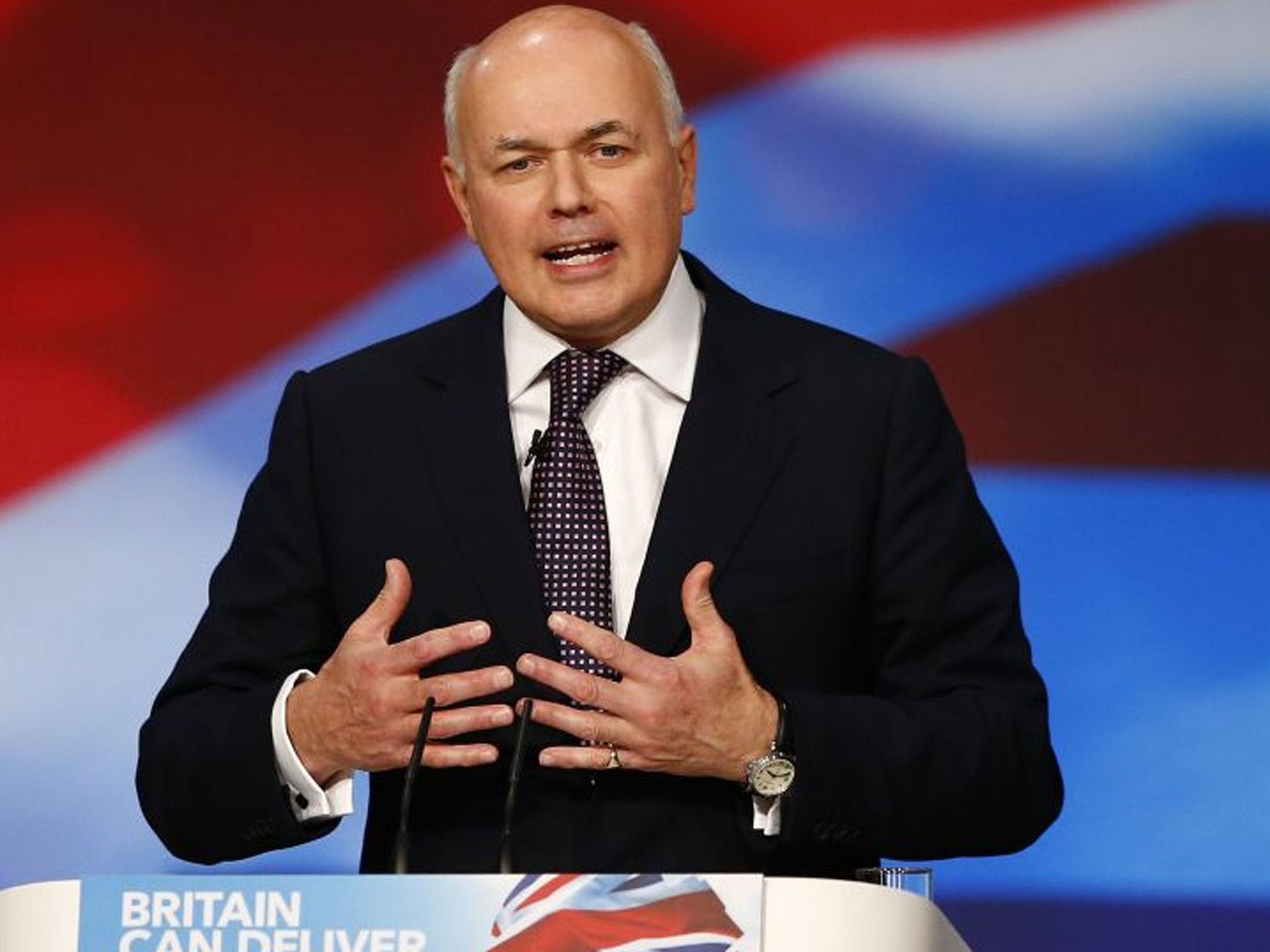Iain Duncan Smith wants two-year ban on immigrant welfare – but Brussels says EU will block attempts to rewrite rules
The work and pensions secretary claims there is a 'growing groundswell of concern about benefit tourism' across Europe

The work and pensions secretary Iain Duncan Smith has said he wants to see immigrants banned from receiving welfare for up to two years after they come to Britain, and that he has received support for the idea from other major European countries.
Yet with David Cameron saying he wants the debate on free movement reopened and Theresa May suggesting an annual cap of 75,000 entrants, the European parliament president Martin Schulz has hit out at the UK for trying to alter the EU’s fundamental principles with “one hand on the escape hatch”.
Mr Schultz told the Observer he takes calls for reform “very seriously”, but added that the kind of changes repeatedly hinted at by Conservative MPs would never be backed by a sufficient number of Britain’s European neighbours.
“The principle of free movement of people has been one of the greatest successes the EU has, it is a fundamental principle and it's not up for negotiation any more than renegotiating the principle of the free movement of goods, services or capital,” Mr Schultz said.
He said that wholesale treaty change would need “unanimous support and ratification of all member states”.
Speaking to the Sunday Times, Mr Duncan Smith nevertheless argued that there was a “growing groundswell of concern about benefit tourism” among key EU members.
He said he had spoken positively with counterparts in Germany, Italy, the Netherlands and Finland about changing the rules to allow member states to be stricter on migration.
The Conservative minister said Britain should be able to tell a migrant: “Demonstrate that you are committed to the country, that you are a resident and that you are here for a period of time and you are generally taking work and that you are contributing.
“At that particular point… it could be a year, it could be two years… we will consider you a resident of the UK and be happy to pay you benefits.”
Britain recently announced that new EU migrants would be banned from receiving welfare payments for three months, amid fears of an influx of Bulgarians and Romanians on 1 January which failed to materialise.
Sources close to Mr Duncan Smith were keen to stress that he was expressing hopes for the future, rather than spelling out a policy.
The deputy Prime Minister and Lib Dem leader Nick Clegg said he backed plans to tackle benefit tourism but felt Britain shouldn't “cower behind the battlements and turn its back on the rest of the world”.
He told the BBC's Andrew Marr show: “The freedom to move around the EU to look for work is one thing, but it’s not the same as freedom to claim benefits on day one no questions asked, no strings attached.
“What I’m not up for is what the Conservative party appear to be doing more widely, which is flirting with exit from the EU. That would be an act of economic suicide for the UK and would actually inflict a lot of damage to many British families across the country.”
Join our commenting forum
Join thought-provoking conversations, follow other Independent readers and see their replies
Comments